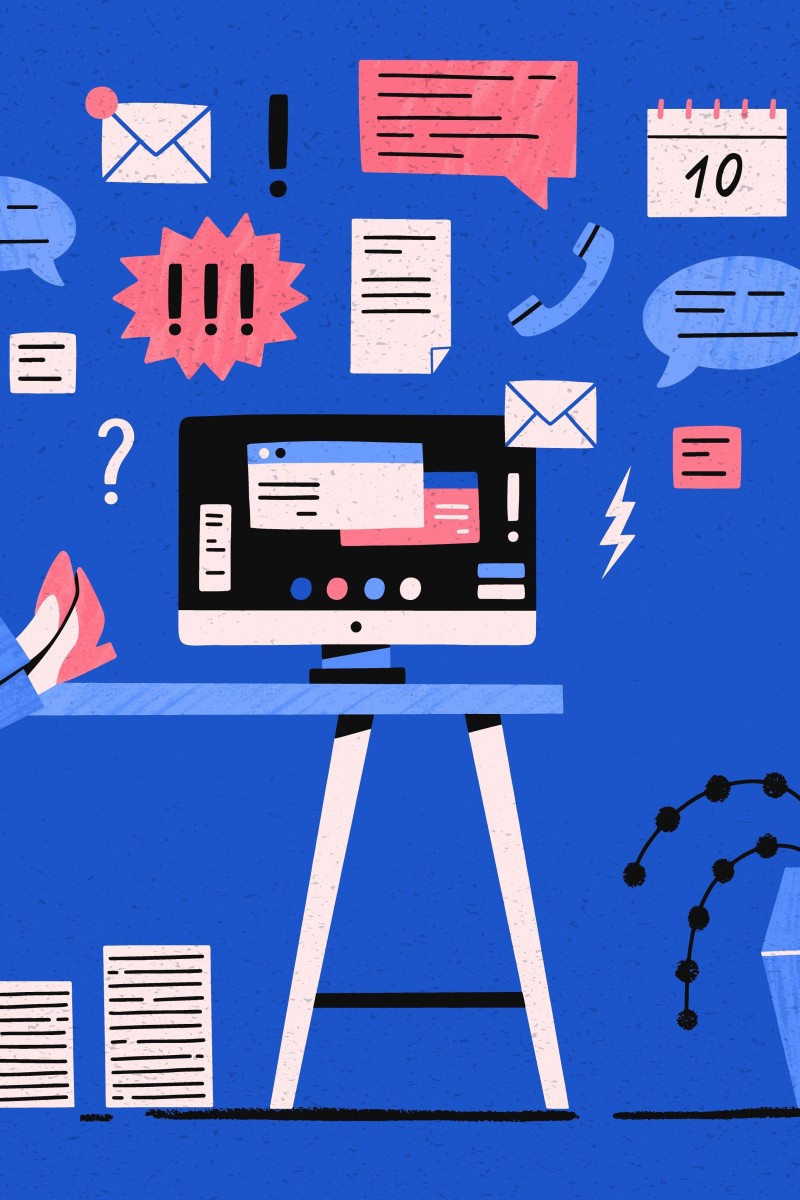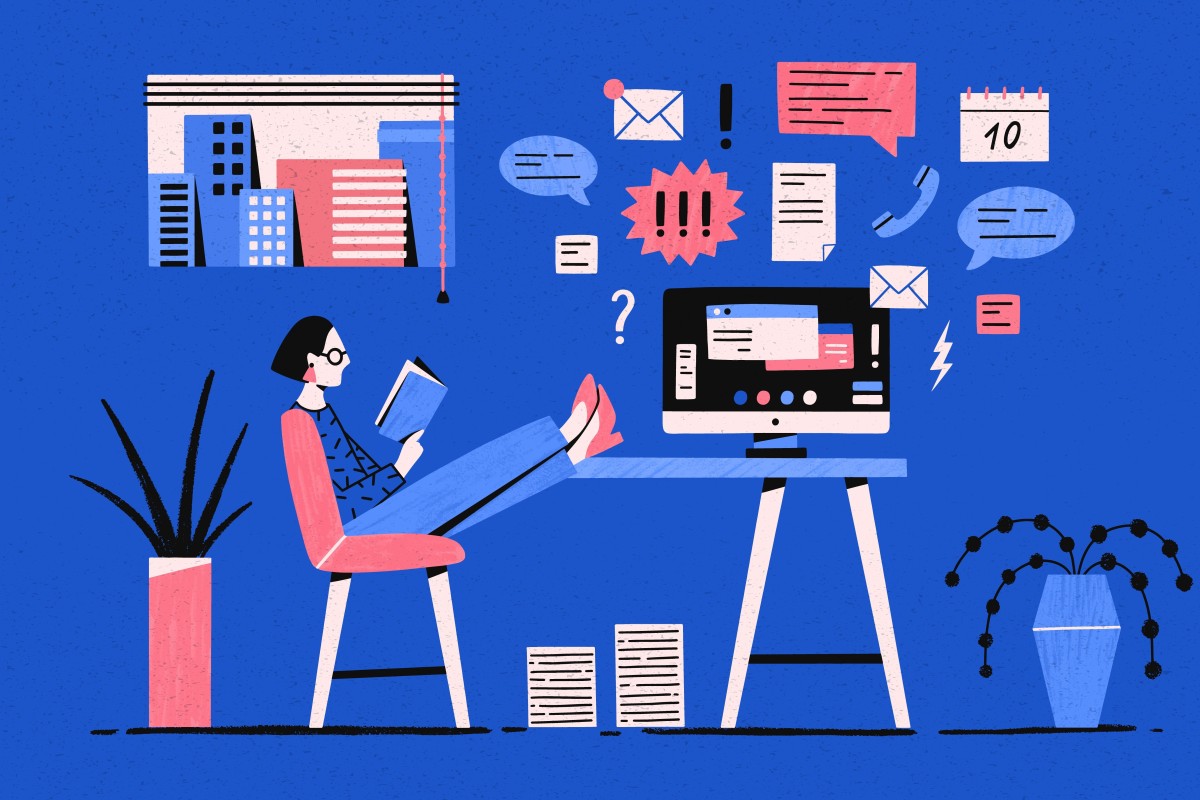
Why you’re procrastinating more during Covid-19, and tips for getting back on track
- Coronavirus caused many changes to your daily routine - such as online learning and fewer activities - and made it more difficult to stay on task
- Be kind to yourself, separate school and relaxation and, most importantly, just start - even if you only take a small step
 We actually meant to post this story earlier, but we kept putting it off.
We actually meant to post this story earlier, but we kept putting it off.Have you been procrastinating more during the pandemic? If so, you are not alone.
When Covid-19 first emerged, people did not have time to process it.
All the changes coronavirus created paved the way for a mental health crisis - increased stress, anxiety and depression - which over time may increase the risk of chronic illnesses, such as heart disease, diabetes and obesity. To compound matters, when people are fearful, stressed or depressed, they are more likely to procrastinate, and delay or postpone tasks and assignments.
But what exactly happens when you procrastinate?
Identify your stress type and how you deal with problems
Procrastination and the brain
Several parts of your brain are involved in procrastination. The limbic system is a set of brain structures involved in behavioural and emotional responses. Essentially, it adds an emotional lens to your daily life experiences. So yes, you can blame your limbic system for all of our intense emotional experiences in life. The limbic system is also involved in instant gratification, pleasure seeking and survival responses.
The prefrontal cortex is involved in navigating more complex behaviours, such as planning and decision-making. So if you have to choose between watching Netflix and making a phone call to schedule an appointment, your limbic system may win over scheduling because watching Netflix perhaps is more fun and less distressing.
This is what can make a phone call feel so complex in your mind, resulting in you deciding to delay it for later. Your limbic system may propel you to put off scheduling your appointment in favour of engaging in something that is easier and rewarding.
We didn't expect to be attacked like this but OK.
Change in behaviours
Before the pandemic, daily schedules and planning helped you stay on track, ensuring you achieved specific goals and completed tasks. But the pandemic changed everything about how you spent the day.
Online learning may have made it difficult for you to separate school and relaxing at home, especially because they became the same space.
The brain tends to associate things together, and that is how habits can form. For example, if you associate your bedroom with sleep and don’t lay in bed scrolling on your phone or watching YouTube, then you fall asleep easier when you go to bed.
Are you guilty of avoidant coping?
Similarly, if you are a stressed student learning online from your flat, you may have noticed that you associate stress with home or the room you study in.
Such lifestyle changes can make you procrastinate and think, “Let me drink a cup of coffee, and then I will finish my project.” This could be in the form of “productive procrastination,” which is when you avoid one task to complete another, often unrelated task. “Let me clean my room first, and then I will take care of my Maths project.”
I was going to write my paper, but the air conditioner just looked so dirty!
What can you do to overcome procrastination?
To overcome procrastination, ask yourself these questions:
- What tasks do you need to complete, and what are the deadlines? Create a list.
- Which tasks are priority? Order the tasks from 1 to 10, with 1 being a priority task and 10 being a non-priority task that you can do later.
- How much time will each task require?
- When can you complete these tasks so that you can add them to your calendar?
Also, follow these tips:
- Be aware of how you feel.
- Your thoughts, feelings and behaviour are related to one another.
Ask yourself these questions to help find out what is contributing to your procrastination:
- How are you feeling today?
- What thoughts are contributing to such feelings? For example, if you are feeling anxious, it would be a good idea to explore the deeper layers of your thoughts and emotions regarding why you are feeling anxious. Initially, it may be hard to identify these anxiety-provoking thoughts and emotions, but over time, it will become easier to name and tame your thoughts, and feel to heal your emotions.
- How are such feelings, such as anxiety, contributing to your procrastination and delaying the completion of your assignments?
Signs of study burnout and how to avoid it
Start, and start small
First, look at the list of tasks that you need to complete, such as studying for an exam, emailing a teacher, or doing corrections on an assignment. Pick one task that you ranked as high priority and try to break it into smaller tasks.
Procrastination often makes you think of tasks as one giant thing that takes a long time to finish. But by breaking it down into smaller ones, you will notice that the intended task is not as difficult as it seemed.
Sometimes just seeing what you have to do makes you realise it's not as much as you feared.
For instance, if you have to study for an exam, one sub-task would be to make a note of the topics on the test, and where you can find the information you need. Another sub-task would be making notes about what you don’t understand, so you know you need to focus more on those topics.
On your calendar, write down when you want to engage in these tiny tasks. Planning is another key factor in winning over procrastination.
The next step is usually the most difficult one: starting. To win over procrastination is to force yourself to start a task, no matter how tiny. For example, if you need to exercise, begin by going for a 10-minute walk. If even that feels like too much, start with five minutes.
Tips for giving yourself a mental health check-up
Work with a partner
Accountability is crucial. Work with a family member, friend or classmate, and help each other. Check in with your partner each day or at least once a week with a phone call, text or email. Plan your days and weeks, talk about priorities, and review how things are going.
A partner can be a motivator and offer support if you start feeling discouraged.
Have someone you can talk to who can help you keep your eyes on your goals.
Add some separation
As mentioned, the mind associates things together. So if you still spend a lot of time studying at home, try to dedicate one specific room or a corner of your home to studying (we know this is hard in Hong Kong’s small flats, but give it a shot!) If you take a break, go to a different room or a separate space.
Don’t browse through social media in the same room where you work. It would be best not to even use the same device you use for studying to browse through social media during your break. Such separation will help you have more meaningful breaks and relax more.
You might be snacking more during the pandemic - and that’s totally fine
Establish a routine
Setting firm work hours can help. Start at the same time each day. Dress up as if you are physically going to school (you don’t necessarily need to wear your school uniform - just change out of your pyjamas). Add breaks for healthy activities, like going for a short walk, stretching, yoga or deep breathing to relax. Go to bed at the same time each night.
A bedtime routine - such as having a cup of tea and journalling for five minutes - can be very helpful too.
Reward yourself
Once you complete a task, mark it on your calendar and reward yourself. This reward does not need to be anything big or expensive! It could be watching an episode of your favourite show, playing your favourite game, or making a healthy smoothie. Again, remember that our mind likes association. By rewarding yourself, you become more motivated to complete tasks as scheduled so you can be rewarded.
What is mental fitness and how can it help you?
Be gentle with yourself
We are human beings, not human doings, and at some point, we fail. Failing once or twice does not mean that we will fail every time. If you fail, keep trying, think positively and use positive self-talk to encourage yourself to help you reach your goals.
In addition, research shows that mindfulness and self-compassion can help with procrastination. These practices are about overcoming negative emotions. People who can acknowledge their mistakes or other personal failings, and then forgive themselves for it, are less likely to procrastinate. In addition, people who practise mindfulness exercises are more likely to stay on task.
This article was written by Yaser Dorri, Ph.D., a psychologist Psychiatry and Psychology in Austin, Minnesota.